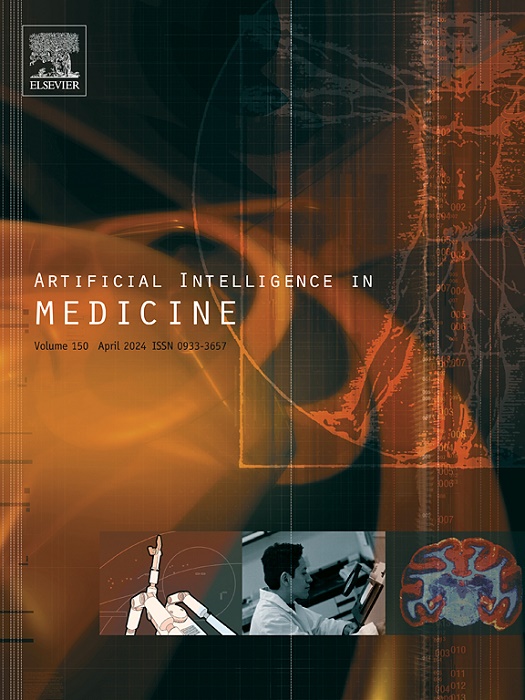ECG synthesis for cardiac arrhythmias: Integrating self-supervised learning and generative adversarial networks
IF 6.2
2区 医学
Q1 COMPUTER SCIENCE, ARTIFICIAL INTELLIGENCE
引用次数: 0
Abstract
Arrhythmia classifiers relying on supervised deep learning models usually require a substantial amount of labeled clinical data. The distribution of these labels is strictly related to the statistics of cardiovascular diseases among the population, which inherently narrows models’ performance for classification tasks. Furthermore, during acquisition and data retrieval from electronic health records, concerns arise regarding patient anonymization due to stringent clinical policies. We introduce a conditional generative architecture for electrocardiography time series, which integrates self-supervision and generative adversarial principles. Empirical validation confirms the enhancement of morphological plausibility in synthetic data, showcasing its effectiveness in generating realistic signals. We propose a novel model (ECGAN), proving its capability of conditioning the probability distribution of ECG recordings. The proposed methodology is assessed upon various rhythm abnormalities including severe congestive heart failure, myocardial infarction, sinus rhythm, and premature ventricular contractions. Our proposed workflow for synthetic time series assessment demonstrates competitive performance compared to state-of-the-art models, achieving an average improvement of 2.4% in arrhythmia classification accuracy across MIT-BIH, BIDMC, and PTB datasets, while ensuring realistic synthetic data and improving training stability.
心律失常的心电图合成:整合自监督学习和生成对抗网络
依赖于监督深度学习模型的心律失常分类器通常需要大量的标记临床数据。这些标签的分布与人群中心血管疾病的统计数据严格相关,这本质上缩小了模型在分类任务中的表现。此外,在电子健康记录的获取和数据检索过程中,由于严格的临床政策,出现了对患者匿名化的担忧。我们介绍了一种结合了自我监督和生成对抗原理的心电图时间序列条件生成体系结构。经验验证证实了合成数据中形态合理性的增强,展示了其在生成真实信号方面的有效性。我们提出了一种新的模型(ECGAN),证明了其调节心电记录概率分布的能力。提出的方法是评估各种心律异常,包括严重充血性心力衰竭,心肌梗死,窦性心律,和室性早搏。与最先进的模型相比,我们提出的合成时间序列评估工作流程表现出了竞争力,在MIT-BIH、BIDMC和PTB数据集上,心律失常分类准确率平均提高了2.4%,同时确保了合成数据的真实性并提高了训练稳定性。
本文章由计算机程序翻译,如有差异,请以英文原文为准。
求助全文
约1分钟内获得全文
求助全文
来源期刊

Artificial Intelligence in Medicine
工程技术-工程:生物医学
CiteScore
15.00
自引率
2.70%
发文量
143
审稿时长
6.3 months
期刊介绍:
Artificial Intelligence in Medicine publishes original articles from a wide variety of interdisciplinary perspectives concerning the theory and practice of artificial intelligence (AI) in medicine, medically-oriented human biology, and health care.
Artificial intelligence in medicine may be characterized as the scientific discipline pertaining to research studies, projects, and applications that aim at supporting decision-based medical tasks through knowledge- and/or data-intensive computer-based solutions that ultimately support and improve the performance of a human care provider.
 求助内容:
求助内容: 应助结果提醒方式:
应助结果提醒方式:


